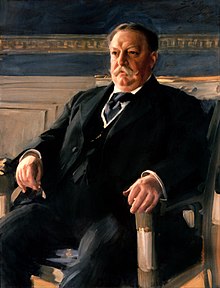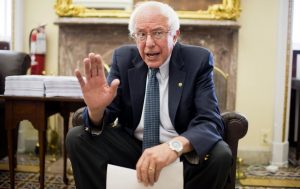Jacoban
COVID Shifts
April 22, 2020Our dear Gaia has mandated pause, a collective time-out, giving opportunity for us to re-consider what is possible. Planetary operations and behaviors are conducive to shifts now. Together, we can accomplish so much, in spite of ruthless and dangerous national and global leadership. We the people, sans greed, power and patriarchy. ‘Everything old is new again.’ What if we did things differently? -dayle
USPS
Defend the Post Office, Defend Black Workers
Jacobin
The United States Postal Service is a crucial institution for black workers in America. That’s why Bernie Sanders’s strong support for defending and expanding the USPS is a key racial justice issue.
For the average black worker, the postal service represents a stable, decent-paying career that is hard to find elsewhere. Today the average salary of a USPS employee is $55,000, and 21 percent of USPS employees are black. The history of black postal workers demonstrates the critical importance of government employment and a robust public sector for the advancement of black people in this country.
Saving and expanding the public sector will be a key fight for racial justice in the 2020 presidential race. Bernie Sanders, with his call for postal banking and robust government programs, is the only candidate offering a real plan to revive the postal service and the futures of black public-sector workers.
As Sanders puts it, “Post offices exist in almost every community in our country. There are more than 31,000 retail post offices in this country. An important way to provide decent banking opportunities for low-income communities is to allow the U.S. Postal Service to engage in basic banking services.” And beyond increasing revenue and employment for the USPS, this measure would eliminate the prevalence of payday loan centers that prey on poor communities of color.
The story of black workers in the post office begins with the legal end of slavery and the soldiers who fought for that freedom. As early as 1861, federal employment was opened up for black workers. In December 1864, Senator Charles Sumner passed a bill banning discrimination in postal employment. Though not always enforced, this protection was critical for enabling black workers to establish a foothold in a relatively stable and secure occupation.
A common theme throughout black history has been the importance of an activist federal government for advancing fundamental interests. Postal workers utilized executive orders in particular to improve their situation in the 1960s. This activism and the resulting legislation created a home for black women workers in the post office as well.
Among the few highlights in John F. Kennedy’s lackluster record on civil rights are his executive orders related to federal employment. Executive Order 10925 was issued in March 1961 and banned discrimination by employers and unions in federal contract work, followed by Executive Order 10988, which provided limited collective bargaining rights for federal employee unions that didn’t practice racial discrimination. These orders came after intense lobbying pressure from NAPE and the Negro American Labor Council.
The Equal Pay Act of 1963 was a key factor in helping black women find work in the post office in large numbers.
https://www.jacobinmag.com/2019/07/post-office-black-workers-bernie-sanders-usps
BENJAMIN FRANKLIN Postmaster General
July 26, 1775 to November 1776
Franklin’s postal career began in 1737 when the British Crown Post appointed him postmaster of Philadelphia. In Franklin’s day, newspaper printers often served as postmasters, which helped them to gather and distribute news. More important, postmasters decided which newspapers could travel free in the mail – or if they could travel by mail at all. Philadelphia’s previous postmaster, who printed a rival newspaper, had barred Franklin’s Gazette from the mails.
He encouraged postmasters to establish the penny post, a British idea he had implemented while postmaster of Philadelphia, whereby letters not called for at the Post Office were delivered for a penny. He also ordered postmasters to print in newspapers the names of people who had letters waiting for them. Remembering his own experiences as a printer and postmaster, Franklin abolished the practice of letting postmasters decide which newspapers could travel through the mail and mandated delivery of all newspapers for a small fee. Thanks in part to Franklin’s efforts, the British Crown Post in North America registered its first profit in 1760.
https://about.usps.com/who-we-are/postal-history/pmg-franklin.pdf
William Howard Taft
27th President of the United States
Inaugural address, March 4, 1909 [excerpt]
The incoming Congress should promptly fulfill the promise of the Republicanplatform and pass a proper postal savings bank bill. It will not be unwiseor excessive paternalism. The promise to repay by the Government will furnishan inducement to savings deposits which private enterprise can not supplyand at such a low rate of interest as not to withdraw custom from existingbanks. It will substantially increase the funds available for investmentas capital in useful enterprises. It will furnish absolute security whichmakes the proposed scheme of government guaranty of deposits so alluring,without its pernicious results.
The negroes are now Americans. Their ancestors came here years ago againsttheir will, and this is their only country and their only flag. They haveshown themselves anxious to live for it and to die for it. Encounteringthe race feeling against them, subjected at times to cruel injustice growingout of it, they may well have our profound sympathy and aid in the strugglethey are making. We are charged with the sacred duty of making their path as smooth and easy as we can. Any recognition of their distinguished men, any appointment to office from among their number, is properly taken as an encouragement and an appreciation of their progress, and this just policy should be pursued when suitable occasion offers.
Bernie Sanders:
“We cannot allow Donald Trump to use this horrific pandemic as an opportunity to bankrupt and privatize the Postal Service,” Sanders tweeted earlier this month. “Now, more than ever, we need a strong and vibrant postal system to deliver mail 6-days a week. Congress must act now to save it.”
“The situation is absolutely dire,” Mark Dimondstein, president of the American Postal Workers Union (APWU), told New York magazine in an interview last week.
The USPS has been hit hard by the sharp decline in mail volume caused by the coronavirus outbreak. The Postal Service also remains shackled by a congressional mandate requiring the agency to prefund its retirees’ health benefits through the year 2056.
“The post office will likely run out of money sometime between July and September of this year,” said Dimondstein. “If they run out of money, then the people lose the service.”
HuffPost:
‘The workers are part of a workforce deemed “essential” during the coronavirus crisis, meaning that — like grocery store workers, firefighters, garbage collectors and more — they still have to show up to work every day, even as large swaths of the country have closed stores and schools, and companies have mandated employees work from home.’
Senator Bernie Sanders conducts a news conference on July 5, 2011.
“If the goal of the Postal Service is to make as much money as possible,” Sanders told The Nation, “tens of millions of people, particularly low-income people and people in rural areas, will see a decline in or doing away with basic mail services.”
First among the Vermont senator’s proposals is an end to the USPS’sburdensome pre-funding mandate, which requires it to prepay decades of retiree health benefits. This unique requirement, which costs the USPS billions every year, was imposed by Congress in 2006, when mail volumes were historically high, but after the recession it became impossible to make the payments.
Since 2006 the agency has been barred from offering new products and services: At present, it cannot notarize documents, wrap presents, or ship alcoholic beverages. Sanders argues that Congress should allow the agency to do all these things and more, even suggesting it could expand into digital services and “offer a non-commercial version of Gmail.”
These proposals may sound surprising, but experts say they enjoy broad support among Postal Service stakeholders, and that the USPS would probably offer many of them if it could.
“Bernie may seem like a radical on some issues, but on the post office, he’s just plain common sense,” said Steve Hutkins, an NYU professor who runs the website Save the Post Office. Hutkins says most of Sanders’s proposals have been endorsed by the unions and the major mailers.
https://www.thenation.com/article/archive/bernie-sanders-commonsense-plan-save-postal-service/
UPDATE
4.24.20

BOSTON, MA – APRIL 9: A US Postal Service employee wears a mask and delivers mail in the wind and rain in Copley Square in Boston on April 9, 2020. Mail carriers must work amid the COVID-19 pandemic. (Photo by Lane Turner/The Boston Globe via Getty Images)
“Today, while more than 600,000 postal workers in the U.S. are putting their lives on the line delivering mail and packages, the institution itself is at risk of going bankrupt as a result of the coronavirus crisis.
The USPS is expected to lose about 50% of its revenue due to a loss of mail volume during the pandemic. And what most people do not know is that the USPS does not run on taxpayer dollars — it relies completely on revenue created by postage and postal services.
With such a significant drop in revenue, the USPS will be unable to carry out its work.
If we can bail out large corporations, we can damn well help the Postal Service — the most popular government agency in America — from going bankrupt because of this horrific pandemic.
That is why I am asking you today:
Unlike privatized delivery services, the Postal Service is required by law to deliver all mail and packages to everyone nationwide, regardless of where they live. And each year it is responsible for delivering 1.2 billion packages of medicine to those who need it.
How will people get their prescription drugs and, once they become available, their coronavirus test kits? How will we allow people to vote by mail in an election that is facing unprecedented hurdles to getting voters out to the polls? How will these things be possible if we do not have a fully functioning Postal Service?
Without relief or intervention, the United States Postal Service will not be able to sustain itself for the long term, which means it will not be able to deliver mail and packages to 160 million addresses all over the country.
That is why we must do everything we can to protect the Postal Service, which is at serious risk as a result of the economic crisis created by the coronavirus pandemic.”
-Sen. Bernie Sanders, (D) Vermont






